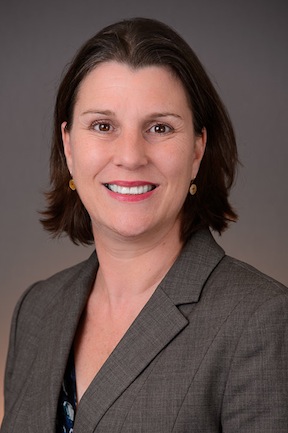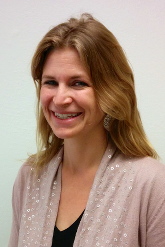A newly implemented policy requiring passengers to weigh in before boarding flights on Hawaiian Airlines has triggered a national conversation over obesity and whether people of larger body sizes face discrimination.
ASU researcherBrewis is a President's Professor in the School of Human Evolution and Social Change, an academic unit of the College of Liberal Arts and Sciences. Alexandra Brewis has heard about the controversy and says that although the issues are nothing new, she and her colleagues at ASU’s Obesity Solutions are coming up with novel ways to approach them.
“There’s plenty of research on obesity. The point is not that we need to study it more, but that we need to study it better,” Brewis said. “There is no country, despite 20 years of public health effort, that has reversed rising obesity rates. That means the types and scale of solutions we’re implementing are not working.”
Obesity has been linked to heart disease, high blood pressure and even some cancer. There are many causes, and larger people say they face stigma and discrimination, the basis for criticism of the Hawaiian Airlines policy. Hawaiian Airlines representatives, however, have said they only want to ensure safety and fuel efficiency. Federal officials ruled recently that the policy wasn’t obviously discriminatory.
As for ASU, researchers want to tackle both the public health concerns and stigmas.
Co-director of ASU Obesity Solutions Alexandra Brewis
One of the goals of Obesity Solutions, a partnership between ASU and the Mayo Clinic, is to get away from assumptions and conventional wisdom, and instead focus on habits and motivations to develop lasting solutions.
The Post-Bariatric Lives Project has been employing just such an anthropological approach to help people who have lost considerable weight through surgery.
It “was conceived of as way to bring social science into alignment with medical models of treating obesity,” Brewis said. “Our partnership with Mayo Clinic, allowing us access to work closely with patients struggling with weight issues, has allowed us to do that.”
The project, which began in 2012, is in the final stages of wrapping up field work and disseminating findings, though several publications have already come out of the study — research that has been highlighted in the media, including a New York Times report with the headline “The Shame of Fat Shaming.”
“Because we have such an interdisciplinary team working on this study, people with different strengths and skill sets, it’s easier to talk to a wider audience,” said Sarah Trainer, a post-doctoral fellow with Obesity Solutions who is working on a book that will share the findings in a way that allows health professionals to consider weight loss from the patient’s perspective.
“We have this incredibly rich data set that allows us to use different lenses very strategically to look at different issues,” she added.
The project also draws on the design aspirations of the New American University to act locally but think globally, and to think in innovative ways to design solutions to complicated problems.
As a medical anthropologist, Trainer joined the project in 2014 with the objective of building relationships with bariatric patients and health care providers at the Mayo Clinic in Phoenix, seeking ways to improve patient experiences. She started out by attending pre-surgery behavioral classes and support group meetings.
“To the untrained eye, it looked like I was just lurking,” Trainer said. But as she got to know the patients better, she was able to conduct one-on-one interviews. “Then I was able to get a really in-depth look at how they’re coping with this life-altering event.”
Trainer followed each patient for about 18 months, from pre- to post-op, observing changes in their relationship with food, how they dealt with health issues and how they interacted with people.
One surprising finding was that patients who had undergone the surgery and lost significant amounts of weight often did not divulge to new acquaintances that they used to be heavier. That’s because bariatric surgery is sometimes seen as “cheating.”
ASU Obesity Solutions post-doctoral researcher Sarah Trainer
“From a medical perspective, surgery is the single most successful strategy of dealing with extreme obesity. We assumed as people dropped weight they would find release from stigma,” Brewis said. “That’s not what happened. Having a past of extreme weight turned out to be hard for people to escape from, because of this idea that they didn’t put in the hard work.”
Part of the stigma, researchers say, is linked to the proliferation of gyms, gadgets and restaurants that offer healthier options. “There is a definite tide flow to the casual stigmatizing of larger bodies,” Trainer said. The people who choose to undergo bariatric surgery have spent a lifetime dealing with that.
“We need a wholesale shift toward understanding and empathy for our fellow human beings, recognizing that blaming people for their weight does more harm than good,” Brewis said.
“And that’s not an easy ask. But we’ve seen public attitudes toward things like same-sex marriage change. So we know there is the capacity for society to do it.”
More Arts, humanities and education

ASU launches ‘AI-Informed Writing Classroom’
“How do I know what I think until I see what I say?”This question, attributed to novelist E.M. Forster, alludes to the role of writing in discovery and cognition.In 2026, the existence of large-…

Fluent Futures Lab teaches what English textbooks miss
Learning English is about more than mastering key vocabulary and demonstrating verb tenses — it’s about knowing what to say, how to say it and when. At Arizona State University,…

The road to royalty: Becoming Prince
How did Prince’s cool tracks like “Little Red Corvette” and “When Doves Cry” emerge from a place as famously uncool as Minnesota?That's the question legendary TV host Dick Clark asked…


